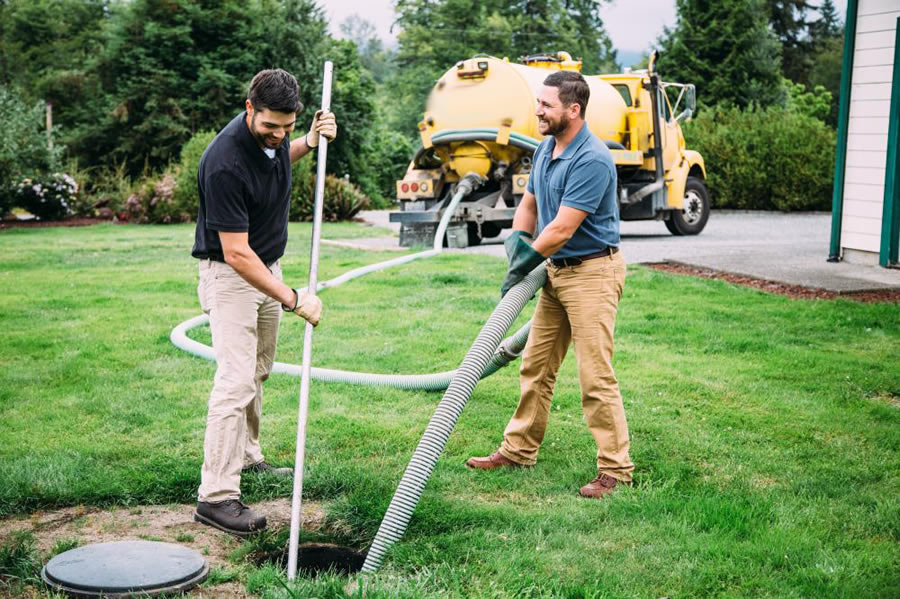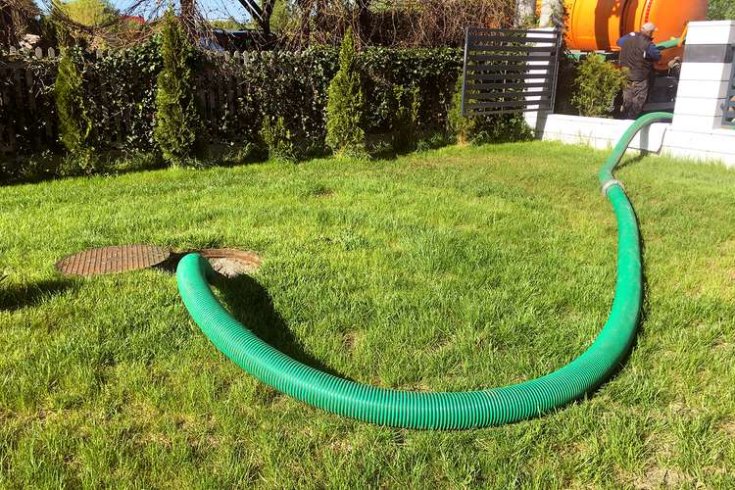
11
There are many instances where homeowners call a septic company because they need emergency service with their septic system. Problems related to septic systems usually develop over time, so it’s possible to notice some warning signs ahead of time. While the warning signs can be helpful, it would be nice to never have to come across them again. If you take care of your septic system properly, you’ll highly decrease the chances of an issue developing. Here are some tips by Charlotte Septic Pros on how to maintain your septic system.
An average septic tank should be pumped every 3 to 5 years or depending on the size of your tank and the number of people in your household. This prevents damage to your septic tank and backups into your house. When plumbers come for septic tank pumping, they also check for leaks and any damage to your septic tank. Septic tank pumping is a crucial part of septic maintenance and should not be ignored.
If an abundant amount of water is flushed into the septic tank at once, it will disrupt the pre-treatment process and push solids out of the septic tank. Save water during tasks like brushing your teeth and doing the dishes. Separate the times for showers and laundry and check the house for any leaks you can repair.
Any substance that is non-biodegradable should not enter your septic tank. This includes baby wipes, diapers, feminine products, dental floss, etc. Toilet paper and waste should be the only thing you flush down the drain. Non-biodegradable products will clog and damage your septic tank, creating problems in the future. Throw them in a nearby trash bin instead.
Although your septic tank should be fine if you treat it properly, you should still be on the lookout for any warning signs. The smelly liquid in your drains, wastewater on the drain field, bad odors coming from nearby, and grass that is greener near your septic tank are all signs that indicate something is wrong. Call a professional from a septic company to do further inspection on your septic tank if you notice any of these signs.
Your drain field is just as important as your septic tank. Closely regulate what enters your dream field by monitoring what goes down your drains. Never park vehicles or plant trees and shrubs near your septic system, as their roots can damage the pipes and septic tank. Be careful with the cleaning products you use as well. The chemicals in some cleaning products can kill the bacteria that help the breakdown of waste in the septic tank. Make sure sump pumps empty away from the drain field.
It’s your responsibility as a homeowner to take care of your septic system. Follow the guidelines above and make sure you consult with professionals if you have any doubts about your septic system. If you need plumbing service, call Charlotte Septic Pros and we’ll get right to it.

28
Why Is Sewage Backing Up into My Tub? When wastewater starts rising into your bathtub, it’s more than just unpleasant—it’s…
Read more
22
Can Bacteria Additives Eliminate the Need for Pumping? If you own a home with a septic system, you’ve probably seen…
Read more
12
A single slow drain in your home can feel like a minor inconvenience. Maybe the sink takes a little longer…
Read more
05
Are Slow Drains a Septic Issue or Just a Clog? Slow drains are one of those household problems that start…
Read more
02
What Septic Service Techs See That Homeowners Miss Most homeowners only think about their septic system when something goes wrong.…
Read more
21
Simple Habits That Protect Your Septic System A well-functioning septic system does its job quietly, but the moment something goes…
Read more
14
Pump Now or Pay Later: The Real Cost of Skipping Maintenance A properly functioning septic system is easy to forget…
Read more
11
Why Your Septic System Always Acts Up at the Worst Time Homeowners often feel that septic problems strike at the…
Read more
04
Early Warning Signs Your Septic Tank Needs Pumping For homeowners who rely on a septic system, routine maintenance is not…
Read more
29
Why Does My Septic System Smell Fine One Day and Terrible the Next? If you own a home with a…
Read more